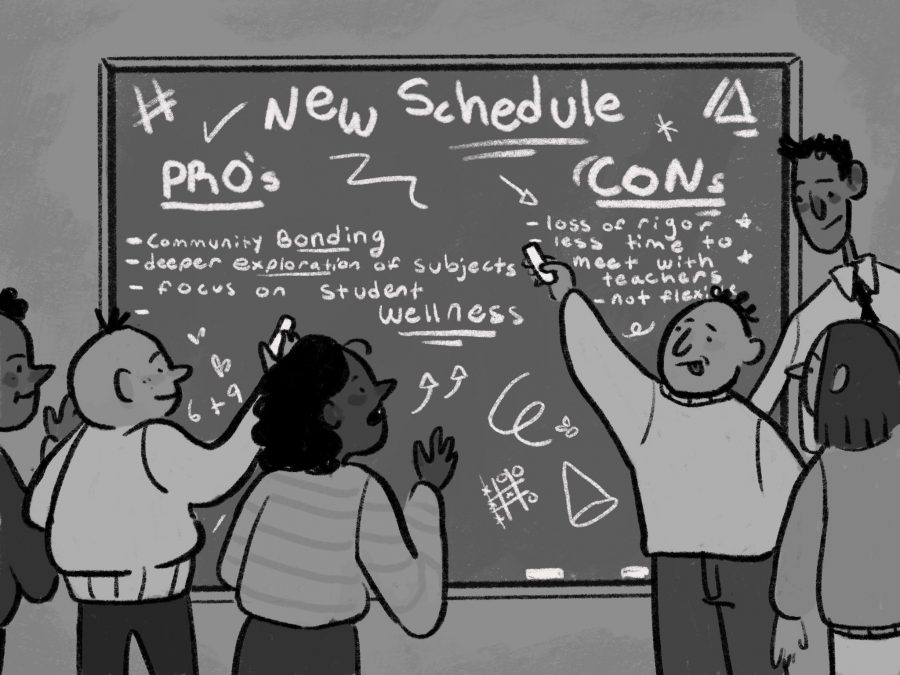The school recently announced plans to reform the daily schedule for the 2020-2021 school year. These changes will bring longer class periods, fewer classes per day and one late start day per week, among other changes. On the surface, this shift appears very positive, with a large focus on student wellness and pedagogy. With such a fundamental change, it is hard to picture exactly what it will be like to go to school with the new schedule. We have to put a blind faith in it, knowing the school has extensively researched how it will ultimately benefit students. However, we do not want to risk damaging what makes the Harvard-Westlake experience unique. While we’re hopeful this change makes Harvard-Westlake a better place, we hope the school will take into account what makes this school and our current schedule so great as they move forward with their meetings to refine details of the schedule in the coming year.
Harvard-Westlake students often cycle between various juggling routines – one of the biggest challenges is handling our myriad of responsibilities and staying organized while balancing them. Students often note the “boom and bust” cycle of the school: it seems like we often have one week free of assessments or projects and then four tests, plus practice, layout, a term paper and seemingly everything else the week after. Our current rigorous schedule uniquely forces us to improve our time management and often also teaches us to work harder and longer to keep up. More than the lessons we learn within the classroom, we should value learning how to plan ahead effectively and quickly switch gears. While losing the (occasionally) 90-hour weeks may aid student wellness, is this grit and work ethic valuable for students to have and important for the school to teach? With discussion in professional circles of the merits of the thirty hour or four day work week, is this a skill that will remain useful?
Harvard-Westlake is deeply demanding in the quality of work many classes expect. This is, overall, a huge plus for students: when our earnest hard work earns us lower grades than we expect, we’re forced to push ourselves harder, reevaluating what we did to try and improve. Many of us feel this has pushed us to heights we had otherwise not imagined, deeply enriching us as academics, writers, thinkers and so much more. In creating a more student-friendly schedule, how can we ensure that this excellence that defines our school is not lost? How can we make sure that changes in how content is taught doesn’t allow us to get away with work less than our best?
Our current system of free periods has allowed many of us to meet with our teachers often, forming deep connections that improve our learning and personal experience, finding mentors and friends in the process. How can we make sure that the new meeting schedule will allow these organic bonds to form just the same, enriching our community and making our school a more tight-knit place? Although meeting periods are built into the day, the more rigid times may make it more difficult to meet with our teachers.
We applaud the administration for its numerous meetings and thoughtful consideration of myriad factors in the implementation of the schedule. It seems fitting then that the schedule was pushed forward by former Associate Head of School Elizabeth Resnick, remembered for her deep and thoughtful dedication to pedagogy, learning and student wellness. We hope that the administration continues her spirit of thoughtful inquiry, improving the schedule to best suit students, faculty and the entire community. Read about the new schedule on A2.

































